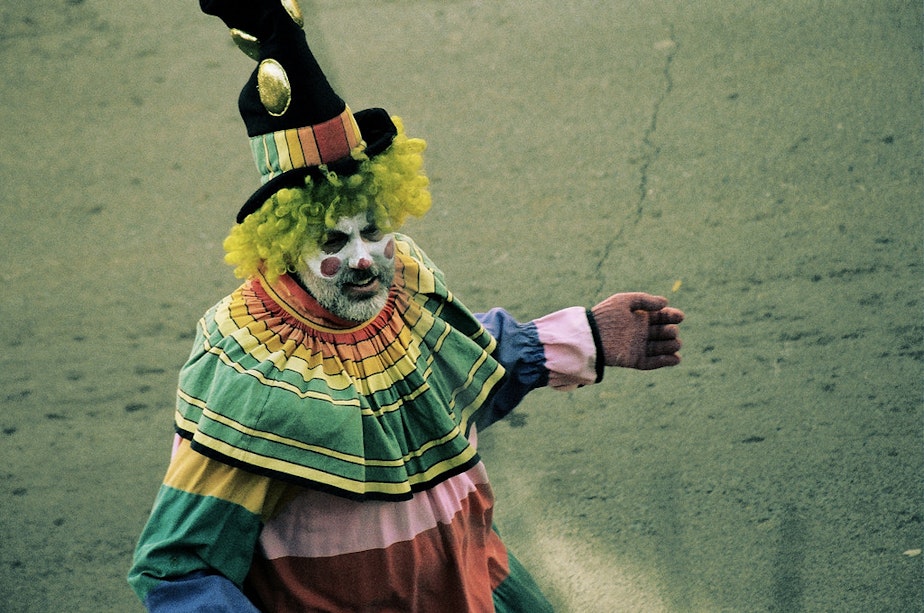Afraid of clowns? There's a word for that

The creepy clowns story has finally made it to Seattle.
This week a clown was seen walking around Green Lake at dusk. People described it as covered in blood with a choking device around its neck. Seattle Schools sent a warning to parents yesterday to keep an eye out.
It's part of a string of clown sightings across the country. And it's creeping people out.
Psychologist Rami Nader, who directs the North Shore Stress and Anxiety Clinic in North Vancouver, B.C., studies the irrational fear of clowns. (Although some might call it entirely rational.)
Yes there's a clinical term for that: coulrophobia. Nader says about 12 percent of people are uncomfortable with clowns. Part of it has to do with the clown itself.
“It has this exaggerated emotional expression that’s always on,” he said. “There’s a discrepancy between what you see on the clown’s face and what it’s doing.”
We know the clown is putting on a façade, Nader continued, which leaves us wondering what the clown is really feeling or thinking.
“Historically clowns have been jesters, or pranksters – if you’re around a clown at a party, you have to be on guard, or you might get the squirt of water in the face, the pie of the face,” he said. “There’s a tendency to be more aware of clowns.”
Recent decades have seen clowns portrayed in a more evil way. Stephen King’s novel “It,” for example.
“It’s given clowns a bad reputation,” Nader said. “The vast majority of clowns are normal, good, friendly, there to cheer people up. Most of the people doing the creepy clown thing aren’t actually clowns. They’re jumping on a bandwagon to scare people.”


